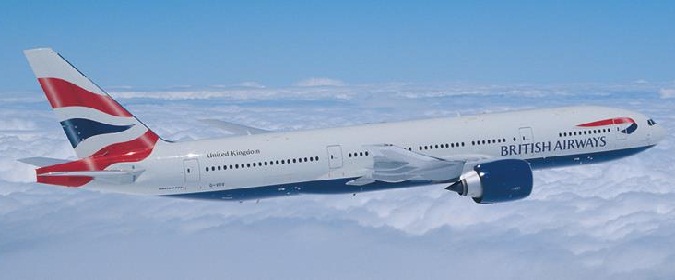Travel
Volcanic Ash – Getting a Clearer Picture

• ZEUS device developed by Met Office and NERC to improve understanding of volcanic ash distribution in the atmosphere
• Device will be fitted to a British Airways 747 aircraft for a year to collect data from around the globe for in-depth analysis
In response to the Icelandic volcanic eruption in 2010 which caused widespread flight disruption to travellers, scientists at the Met Office and Natural Environment Research Council (NERC) have developed a prototype ash detection device, capable of detecting small amounts of ash in the atmosphere. In time, this research could aid ash forecasting and also help airlines more accurately plan their flight and engineering operations.
The device, aptly named ZEUS after the Greek God of the skies, has been fitted on a British Airways 747 and data has already been successfully downloaded from its first flight to Johannesburg and will be analysed by the Met Office. It will continue to fly on long-haul routes around the world for a year, collecting data for analysis.
ZEUS was developed after a pilot in a research aircraft noticed that static levels created by low levels of volcanic ash in the atmosphere caused his hair to stand on end. Met Office and NERC scientists seized on this phenomenon to develop and patent the device which uses measurements of static as a tool to detect ash.
An early prototype of ZEUS has been flying on the NERC/Met Office dedicated research aircraft and a Flybe Dash-8 Q400 passenger aircraft since 2012, gathering background data from around Europe. This data was used to demonstrate that the ZEUS sensor can distinguish between the levels of electrostatic charge on the aircraft when flying in normal conditions and when volcanic ash is present.
The advanced ZEUS prototype will be on the British Airways aircraft for a year and will build up a picture of background electric field in normal atmospheric conditions around the globe. When information from ZEUS is downloaded and correlated with flight data – including weather conditions, speed, altitude, location – it can help scientists build a picture of volcanic ash distribution. Aircraft engineers can also use this data to schedule post-flight inspections of engines and aircraft systems.
British Airways’ Captain Dean Plumb said: “We were very keen to be involved in this pioneering research which will be of great value to the aviation industry and beyond. Aircraft regularly encounter small quantities of ash in flights around the world, perfectly safely, and pilots use expert forecasts to plan their routes to avoid more dense ash clouds. ZEUS has the potential to provide a clearer picture of ash distribution and could be used to inform decision making-processes in the event of future volcanic eruptions.”
Ian Lisk, Met Office Head of Natural Hazards said: “This is a very exciting development and a great result of cross-industry collaboration, including British Airways, Flybe, NERC and the Met Office. While further development is still required, we are delighted with progress with this prototype volcanic ash sensor to date and the findings we have so far received from the tests are very promising.”
The Met Office is an expert in aviation forecasting, with responsibility for providing international aviation meteorological services and advice. The London Volcanic Ash Advisory Centre (VAAC), one of nine VAACs worldwide, is hosted and run by the Met Office as part of its aviation forecast operations. London VAAC provides advice on the likely dispersion of ash clouds emitted from eruptions originating in Iceland and the North East Atlantic, and this information is used by the aviation industry to help make decisions on airspace management.

























































